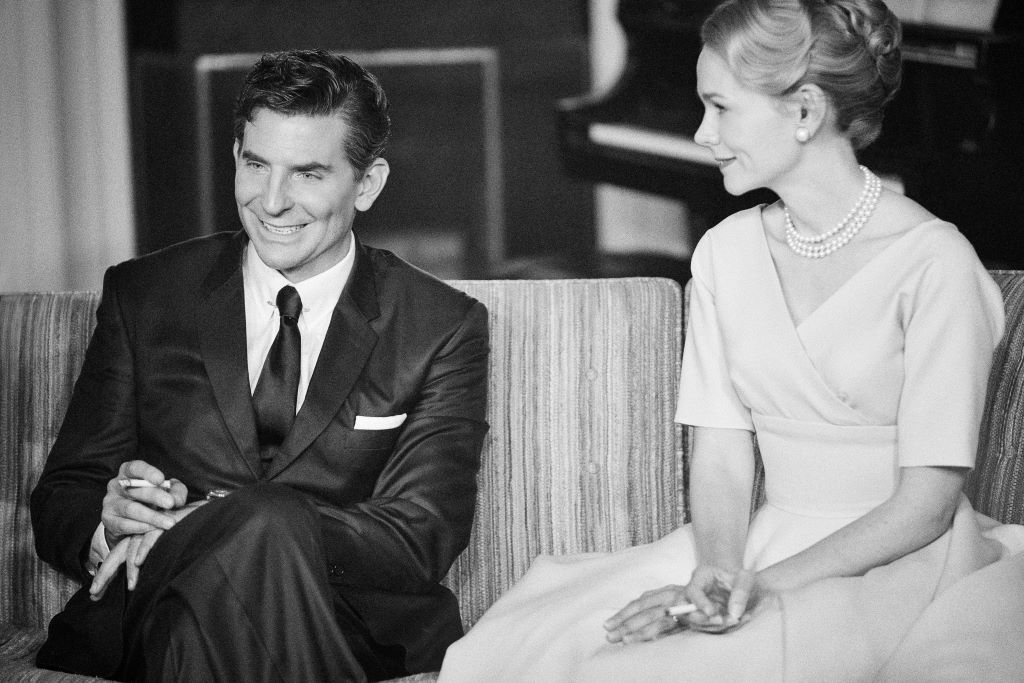Reviews include Superman, Apocalypse in the Tropics, and To a Land Unknown.
TFCA Friday: Week of Dec. 1
December 1, 2023

Welcome to TFCA Friday, a weekly round-up of film reviews and articles by TFCA members.
ICYMI: We are now accepting applications for the Telefilm Canadian Emerging Critic Award.
In Release this Week
American Symphony (dir. Matthew Heineman)
“[Jon Batiste’s] wife and partner since band camp, Suleika Jaouad, is struggling through a second round of treatment for leukemia, which returned after a period of remission. They go tobogganing, live their lives and hope for the best, but the worst of her treatments take place during the final run-up to Carnegie Hall. It’s an emotional, visually beautiful, gloriously scored documentary, glowing with Batiste’s positivity and Suleika’s grace,” says Anne Brodie at What She Said.
“This is no Hollywood bullshit like Bradley Cooper helming Leonard Bernstein’s biography in Maestro, which is more or less Oscar bait,” notes Gilbert Seah at Afro Toronto. “American Symphony is the real thing – a real life American composer and conductor, Jon Batiste, whose life and aspirations are shown in this little but earnest and honest documentary.”
Batata (dir. Noura Kevorkian, Dec. 4 🇨🇦)
“Batata is an extraordinary film because Kevorkian stuck with it, even as the human drama changed, and the politics of the situation became more dire and complex,” notes Marc Glassman at POV Magazine. “Part of the respect one has for the film is an admiration for Kevorkian’s doggedness in telling the story of Marian and her family. The rest is one’s appreciation of a film that records “normal” events—weddings, funerals, dinners—even during immense civil strife. Somehow, that makes one feel a bit more optimistic for the future.”
Candy Cane Lane (dir. Reginald Hudlin)
“Candy Cane Lane is a funny enough comedy thanks to Eddie Murphy and Jillian Bell. despite its really weird premise,” says Gilbert Seah at Afro Toronto. “But done in good fun, the film is all right Christmas fare.”
“As the family does its best to retain the real meaning of Christmas they’re launched into a world of wild world of wizardry, illusion and endless birds,” adds Anne Brodie at What She Said. “Candy Cane Lane is a nutty kind of a Christmas adventure, Murphy gives it his all to save the holiday, its real meaning and nab the big prize.”
Dream Scenario (dir. Kristoffer Borgli)
“Regrettably, Dream Scenario then cleaves itself into two distinct parts,” writes Saffron Maeve at Film Comment. “If the first offers a compelling look into how our unconscious cultural memory can have tactile consequences, the latter recalls the whirling, tiresome modalities of late-stage Black Mirror, which decry all the vanities of technology from the shallow end of the pool. The film’s last act is dedicated to a parody of latent consumerism, wherein a small device allows one to penetrate others’ dreams at the cost of allowing advertisements and ‘sponcon’ to percolate in their subconscious.”
Fireline (dir. Tylor Norwood)
“Fireline covers not only the firefighting performed by the firefighters but also the human aspects of the arduous tasks giving the audience insight on what means to be firefighters on the job, while also showing the trauma of the victims of the fires who have lost their homes and basically everything of their livelihood,” writes Gilbert Seah at Afro Toronto.
Maestro (dir. Bradley Cooper)
“For this viewer, the movie felt stagey and entirely devoid of emotion. You never forget you’re watching a film — a beautifully made film, but still,” says Liz Braun at Original Cin. “The storytelling plays with time. There are some inspired cinematic moments here, when real life melts into performance and “all the world’s a stage” becomes literal, but there is also a self-consciousness about the filmmaking that keeps a viewer at arm’s length. Maybe that’s the point, as the disconnect kind of mirrors Bernstein’s own private-public struggle.”
“Maestro begins with a textual quotation from Bernstein, asserting that ‘a work of art does not answer questions; it provokes them.’ The film then proceeds to illustrate the tensions inherent in such a contradiction, ending teasingly with the words ‘Any questions?’” writes Peter Howell at the Toronto Star. “There are many to be asked of Cooper’s artistic choices. But there’s no denying he’s crafted a movie that is as exhilarating as it is unconventional, a fitting portrait of a man who was determined to always live life on his own terms, no matter the consequences.”
“The flying, sweeping, microscopic, macroscopic, outré cinematography, the interplay of black and white and colour, and the razor-sharp performances that withstand the power of the camera movements are born in radical exuberance,” writes Anne Brodie at What She Said “It’s a heady creation that never eases its rumbling tension and nearly overwhelms the viewer visually, emotionally, and mentally. Steven Spielberg urged Cooper to direct instead of doing it himself and serves as exec producer. Cooper’s career is renewed, and how.”
“Once the fact settles in that Cooper is going full-tilt, though, Maestro becomes an easier extravaganza to swallow,” notes Barry Hertz at The Globe and Mail. “Later, in the film’s most go-for-broke moment, a sweaty, exuberant Bernstein conducts Mahler’s demanding Resurrection Symphony inside England’s Ely Cathedral for an audience of many (but really, one: Montealegre). Cooper shoots the performance as an extended, highly concentrated explosion of artistry that feels two seconds away from literally igniting. It is a baton-drop moment in which both Bernstein (as subject) and Cooper (as filmmaker and star) leave it all on the floor.”
“Bradley Cooper has made a stylish film, which evokes the post-war era when Manhattan was on par with Europe in its fashion, music and glamour,” says Marc Glassman at Classical FM. “The first half of the film, mainly rendered in black and white is wonderfully hectic: we see the 25-year-old Leonard Bernstein replacing an ill Bruno Walter, and scoring a conducting triumph on the stage with the New York Philharmonic; that’s followed by his meeting with Felicia at a party hosted by the brilliant pianist Claudio Arrau; they fall in love and, in an almost hallucinatory scene, participate in a clever pastiche of the three sailors dancing in a Manhattan club to music composed for On the Town. It’s all too exciting, too much fun—but it does give one the sense of a love affair that could sustain a relationship for decades.”
“Not only does Cooper already have a prominent nose, but the make-up is so much more than that, capturing the deep lines, the eventual liver spots, even the wispy silver hairs on elderly Bernstein’s arms in scenes that bookend the film. For all the make-up and hours of daily preparation, Cooper does some of his best acting with his eyes,” says Eli Glasner at CBC. “When we first met young Lenny they’re delicate and shining, especially as the composer spots the love of his life, Felicia Montealegre. Just before they meet at a party, Cooper sets the scene; when Felicia gets off a bus, the lush music of Bernstein’s On the Town swells as she steps into the light.”
“‘Oscar bait’ as Cooper aims to win one for Best Actor if not get a nod for Best Direction,” sighs Glbert Seah at Afro Toronto. “As a biography of Leonard Bernstein, the film’s a failure with only his philosophies in life are mentioned as Cooper recites a few monologues as if being interviewed and lots of scenes of him conducting orchestras and arguing with his wife, with only a small of the life included and with his childhood and early background totally ignored.”
“Any worries that Cooper might be the next George Clooney or, worse, Kevin Costner in the one-hit-wonder actor-turned-director department needn’t worry,” writes Pat Mullen at That Shelf. “Cooper follows his outstanding directorial debut A Star Is Born with the virtuosic Maestro. His confidence as a director is assured. Moreover, as an actor, he’s never been better than he is here while inhabiting iconic composer/conductor Leonard Bernstein. It’s a turn destined for biopic canon in a film that defies biopic conventions.”
May December (dir. Todd Haynes)
“Melton is the heartbeat of the project. In introspection following Elizabeth’s questions, Joe realises he was abused and manipulated by Gracie. His world goes dark,” notes Anne Brodie at What She Said. “The easy-going, loving husband and father is in shock and just as Gracie had no conscience about her actions, Elizabeth’s insensitive questions re-traumatise him, and she keeps pressing. Moore’s perfectly sunny on the outside and darkly dangerous inside; as is Elizabeth. But Melton’s the one who gets the emotional showcase and he delivers brilliantly.”
At Zoomer, Marriska Fernandes speaks with stars Natalie Portman, Julianne Moore, Charles Melton, and director Todd Haynes. “I think that it’s about the desire to engage people’s minds and emotions in what has to involve them. It’s like, we make a movie, but that’s half the conversation,” Portman tells Fernandes. “The other half of the conversation is who’s engaging with. The best way to do that is to provoke someone to feel something. This is exactly that kind of movie where nothing is what it seems and everything will make you want to talk about it after.”
Monster (dir. Hirokazu Kore-eda)
“Compassion, and a deep feeling for a common humanity, is a hallmark of Kore-eda’s style. His movies, including Monster, suggest that most ordinary lives are not so ordinary when you dig deeper. We’re all working through something, or carrying baggage that gives us a perspective that may hold us back or cause us pain. Our impulse to judge ourselves and others can be harsh,” says Karen Gordon at Original Cin. “We all may feel like monsters at times, but the truth is that we’re merely fallible and beautifully human.”
“There is a tentative nature to Monster, which is unlike Kore-eda’s recent quite confident work. Perhaps he, too, wants to shy away from the implications of a film that explores adolescent love—and what is supposedly monstrous—by offering a dream-like conclusion to his tale. Leaving the film ambiguous will likely make Monster more accessible on the international market,” notes Marc Glassman at Classical FM. “Monster has the qualities that should make it a hit. Let’s help to make it happen.”
“Looking at the story from various points of view, and told non-chronically and with criss-crossing of events, nothing is what it seems and things can be interpreted differently with dire consequences,” notes Gilbert Seah at Afro Toronto. “Kore-eda’s film is a bit confusing in the beginning till one realizes what he is trying to do.”
“In the film’s inch-by-inch pacing, sensitive but not treacly tone and even its delicately haunting score – the last work of acclaimed composer Ryuichi Sakamoto, who died two months before Monster’s Cannes premiere – there is a noticeable shift away from the sweet sentimentality of Kore-eda’s most recent work,” observes Barry Hertz at The Globe and Mail. “And while the split-POV conceit initially begs comparisons to Rashômon, Monster’s three perspectives are not so much in argument with one another as they are pieces of the same puzzle. And once they are locked together, the final portrait is staggeringly heartbreaking.”
My Animal (dir. Jacqueline Castel 🇨🇦)
“Don’t go into My Animal looking for a full-on story of Sapphic lycanthropy, however. Whether due to budget constraints or (more likely) artistic choices, we see little in the way of Heather’s transformation, which is mostly teased through shots of howling wolves and blood-red moons,” writes Chris Knight at Original Cin. “Ultimately, what keeps this film from becoming great in either the werewolf or romance department is the way it fails to fully commit to either strain, or to meld them into something new and unique. The ending might even be said to suffer from a case of lupus ex machina.”
“Good intentions and hard work do not always translate to a good film, the fresh new take on teen lesbian love, a werewolf metaphorical story set in a small town hockey setting turns out a disappointment,” admits Gilbert Seah at Afro Toronto.
Raging Grace (dir. Paris Zarcilla)
“A social drama about undocumented Philippine immigrants in England, wrapped up in a creepy English country mansion thriller, Raging Grace hits more tones than a piano tumbling down a staircase,” writes Liam Lacey at Original Cin. “By turns earnest, suspenseful, slapstick and silly, this debut feature from British-Filipino director, Paris Zarcilla, won both the Narrative Feature Jury Award and the Thunderbird Rising Award for Best Debut at the 2023 South by Southwest (SXSW) Festival this past year. Presumably, these were a tribute to its confidently oddball ambition more than its choppy execution.”
Renaissance: A Film by Beyoncé (dir. Beyoncé)
“Beyoncé has been the gold standard for performers and artists over the past several years aided by her intense focus on the work, her art and artistic management of every aspect of the show; the woman is a polymath and keen to control her image,” notes Anne Brodie at What She Said. “Her flawless reputation was dinged this week as some fans protested the film’s release in Israel. On a happier note, daughter Blue Ivy appears onstage, we see Bey without makeup and relaxing (she relaxes?)”
“For my money, Renaissance is a more enjoyable watch than the essentially one-woman show that is The Eras Tour because Renaissance is a collective act of joyous creation that also includes much more audience participation,” writes Peter Howell at the Toronto Star. “Renaissance also feels more human despite its many sci-fi movie references — Metropolis, Barbarella, Blade Runner and more — in costumes and in videos presented on a giant round screen resembling the one Pink Floyd used in its tours.”
A Revolution on Canvas (dir. Sara Nodjoumi and Till Schauder)
“A Revolution on Canvas is the daughter’s director’s extensive home movie on her father,” says Gilbert Seah at Afro Toronto. “The film has interesting material though the material might be considered too personal and too Iranian or too narrow in its appeal.”
Silent Night (dir. John Woo)
“When the carnage does arrive, it is all choppy street-level brawls and uninspired gunplay, the kind of bargain-basement action that feels directed by someone desperately trying to imitate John Woo (or John Wick),” sighs Barry Hertz at The Globe and Mail. “While there are several shoot-and-you’ll-miss-’em moments in which Woo seems to be pushing up against his production’s limitations – a gritty “one-shot” stairway brawl would be cool if the exact same sequence hadn’t already been done a dozen times over by everyone from Gareth Evans (The Raid) to Cary Joji Fukunaga (No Time to Die) – the ultimate result is a gut-shot to action diehards.”
“A silent action film is an exciting concept, but Silent Night isn’t entirely silent. The movie is filled with grunts, groans, screams, cries, and barely audible tones of empathy and grief. And though there are some clever moments angled to make the gimmick work, the script might better serve the Writer’s Guild of America as a P.S.A. demonstrating the need for good onscreen dialogue,” advises Thom Ernst at Original Cin. “Woo does book-end the film with knockout action sequences, one that sets a promise it doesn’t fulfill and the other a tacked-on reminder of that promise. It may be enough to keep diehard Woo fans happy. Even so, Silent Night is not the second coming of Die Hard that we might have hoped.”
“Silent Night is the ‘perfect’ anti-Christmas movie in which unforgiveness rules,” notes Gilbert Seah at Afro Toronto. “After a two-decade hiatus, the Hong Kong director returns with this awful violent movie, the poorest version of a John Wick 4 and The Killer action movie that has the audience ask the question: ‘Am I supposed to be entertained by all this?’”
Sisters (dir. Linda Olte)
“In the end, director Olte’s film achieves the creation of hardship and poverty of uncared children in an uncaring society,” observes Gilbert Seah at Afro Toronto.
Women on the Edge (dir. Azul Lombardía)
“Women on the Edge might not win any film awards, but it is good old-fashioned female fun. like the sexy but harmless comedies turned out in the 60s,” says Gilbert Seah at Afro Toronto.
File Under Miscellaneous: On Kain and CanCon
At Zoomer, Brian D. Johnson speaks with ballerina Karen Kain about her long career on the stage and mounting an ambitious production of Swan Lake as see in the four-part documentary series and feature film Swan Song. Kain talks about her relationship with Nureyev, the courage of taking the stage, and the boldness of reimagining Erik Bruhn’s take on Swan Lake. “Before retiring, she was determined to revamp Danish choreographer Erik Bruhn’s version of the ballet – the one that launched her career. The company had since replaced it with James Kudelka’s much darker production, which Kain loathed. I hated the design. I hated the storytelling. I hated that it was so dark and un-redeeming.’ [says Kain.] As she raised millions of dollars to restage Bruhn’s version, ‘I felt incredibly guilty that we had one in the warehouse that cost a lot money. But we had something precious that was discarded. I felt, I’ll never be in the position to do this again, and if I have the chance, am I brave enough? It’s now or never.’”
At The Globe and Mail, Barry Hertz profiles the Canadian film Going In, which had a decade-in-the-making production, crowd-funding campaign, and rocky road to release, but is finally bringing its take on 1980s’ flicks to audiences: “It was paramount for us to emulate that era’s style, so we used vintage anamorphic glass lenses, ‘80s-standard lighting, the appropriate editing techniques,” director Evan Rissi tells Hertz. “And the story needed to be weird enough – and genre-heavy enough – that it feels dead-serious about being ridiculous.”
TFCA member Saffron Maeve kicks off her Contours screening series with MUBI at the Paradise Theatre on Monday, Dec. 4. The series goes inside the art world, starting with a screening of Downtown 81: “Meandering through the veritable ruins of a razed Lower East Side, Swiss-Italian photographer Edo Bertoglio’s Downtown 81 follows an undiscovered 19-year old Jean-Michel Basquiat (post-hospitalization for an unidentified ailment) trying to sell a painting for a quick buck so he can regain access to his apartment. The propulsive force of the grind takes Basquiat to local haunts—strip clubs, punk venues, and dive bars—where we come across other victims of the hustle. Playing into the idea of the much-mythologized New York scene, the film plays like a Märchen, supplanting knights and princesses with burnouts and sex workers.”
TV Talk/Series Stuff
At What She Said, Anne Brodie dives into the mystery of The Billionaire, The Butler, and The Boyfriend: “Closer inspection of the couple revealed huge political and ethical bad acts. Bettencourt was slipping into dementia and made him her sole heir. Things get really out of control in this wild and wacky, real-life crime romance series.”



